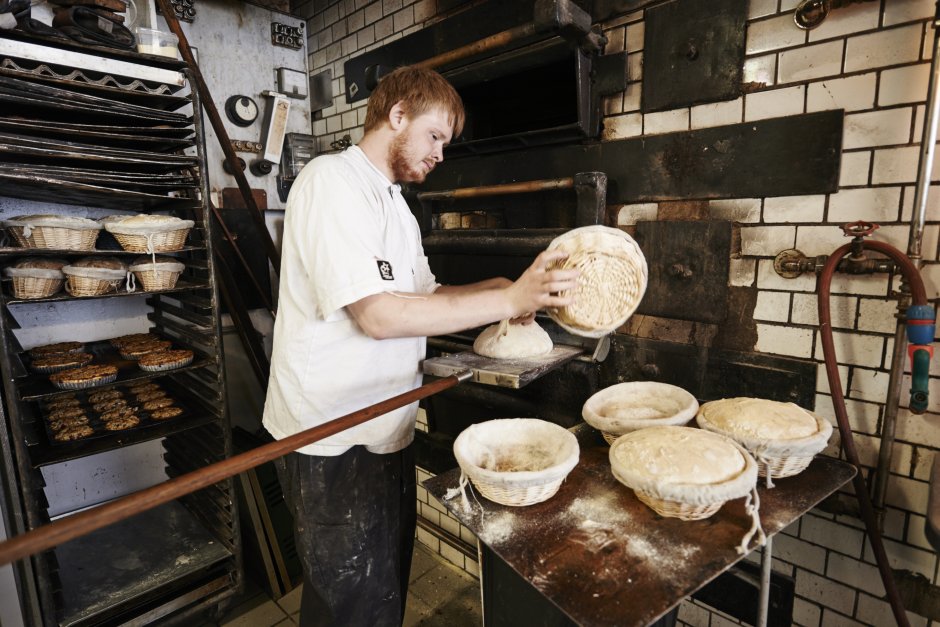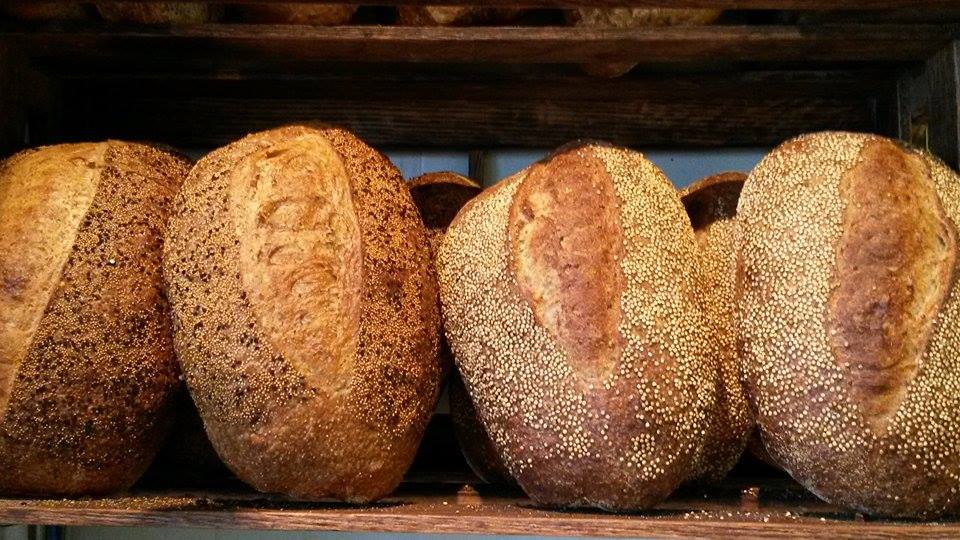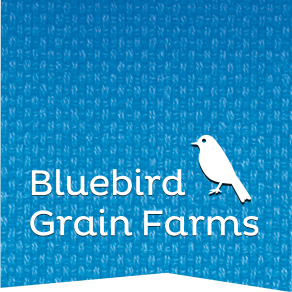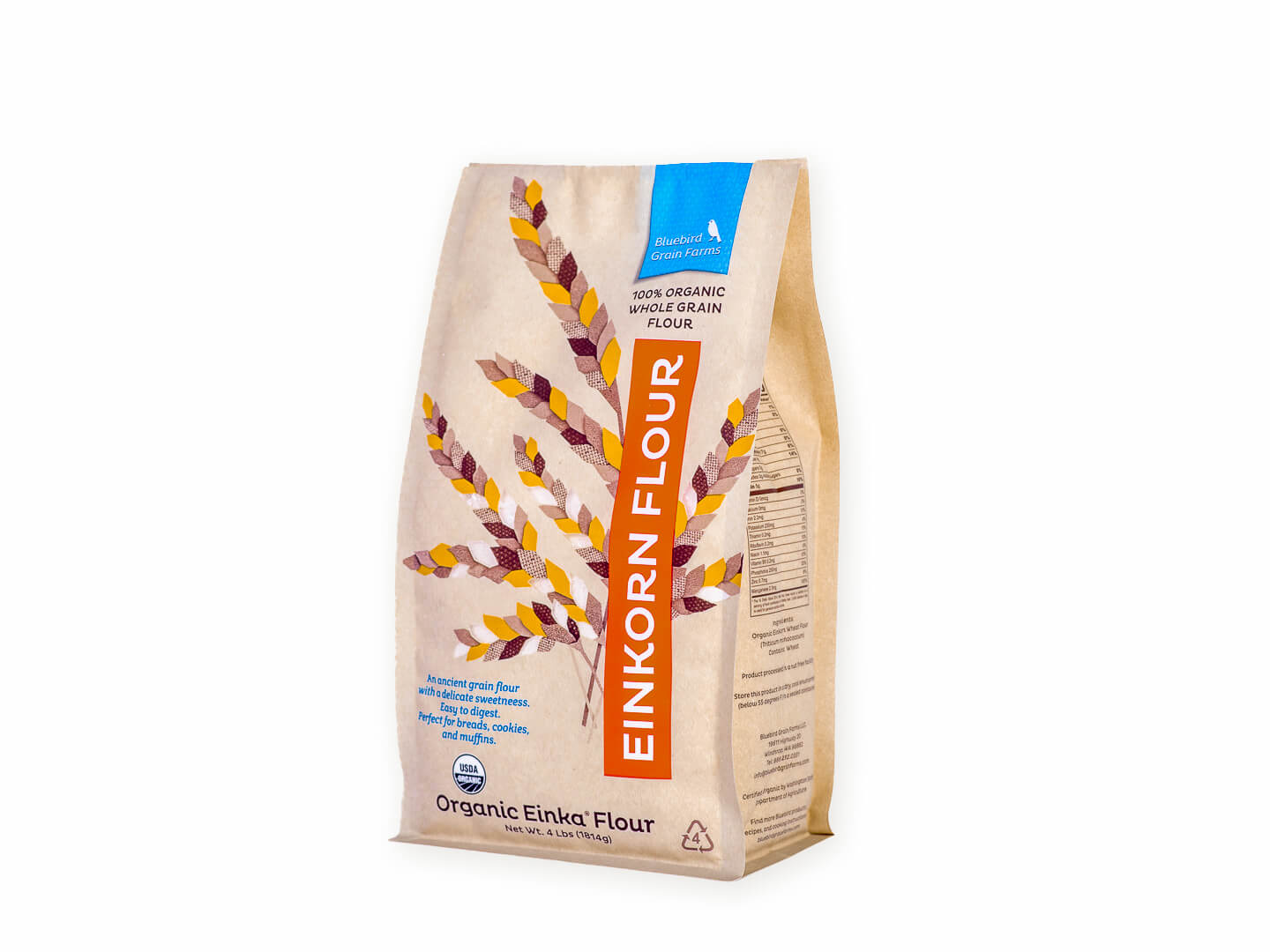
by Bluebird Grain Farms writer Ashley Lodato
If you’ve been looking for an excuse to visit Reykjavík, Iceland, Sandholt Bakery is the answer. It might seem like a long way to travel for a crusty sourdough loaf or a flaky Danish, but add in the bakery’s nearly 100-year history and you’ve got an educational opportunity on your hands.
The recipes may have changed since the original Sandholt Bakery opened its doors in 1920, but the philosophy remains the same: use the best ingredients and avoid taking shortcuts in order to produce the best-quality breads and pastries for Sandholt customers. These principles have guided four generations of master bakers at Sandholt, as they seek to straddle the line between innovation and tradition.

Iceland has a long and complicated history with grain productions. When the Vikings settled in Iceland in the middle of the 9th Century, a warm period allowed them to harvest rye, barley, and wheat, which were staples of their diet for nearly 500 years. But a cold spell set in during the 14th century and for another 500 years grain farming was not viable and grain consumption was minimal. During the modern era, says Sandholt apprentice baker Aðalheiður Reynisdottir, people in Iceland became accustomed to eating processed flours in bag mixes. Perfectly serviceable, certainly, but lacking both the nutrition and the taste of the freshly-milled flours that Sandholt Bakery uses. This commitment to whole grains and ancient varieties is what has set Sandholt Bakery apart from other, more conventional, bakeries for almost a century. Says Reynisdottir, “We put a lot of effort and thought into our products and I believe the customer can see and appreciate that.”
Sourcing flour in Iceland is, as you might imagine, difficult. Many suppliers are simply unwilling to ship to the country. In Bluebird Grain Farms, however, Sandholt Bakery found not only a willing supplier, but also one who shares Sandholt’s passion for grains that are as packed with nutrition as possible. Bluebird was willing to ship ancient grain flours, yes, says Reynisdottir, but “what interested us even more about Bluebird Grain Mills is the flour is stoneground meaning the flour from the mill is more nutritious.”
Sandholt Bakery features several sourdough breads daily, including einkorn and emmer loaves using Bluebird flours. “We couldn’t be happier,” says Reynisdottir of the flours. “The flour makes the bread rise brilliantly and we have also been experimenting with Einka natural yeast and the results are fascinating. It ferments quicker than yeast from white flour, making it ideal to use.”
Sandholt is on a bit of a mission, according to Reynisdottir, as Icelandic customers are “realizing that bread isn’t just bread.” As more nutritious (and infinitely more delicious) products are appearing in Icelandic bakeries, says Reynisdottir, Icelandic customers are “opening their minds to new and healthier options that for so long have been unavailable in Iceland.” Breads made from as kamut, quinoa, barley, spelt, and bulgar, as well as einkorn and emmer, are mainstays on the Sandholt menu, and are cultivating the Icelandic palate. “This makes me as a baker very happy because that means all our work bringing in new flour is paying off,” says Reynisdottir.
In the future, global climate change may well prove a boon to the grains market in Iceland. Temperatures in Iceland have been steadily rising, allowing farmers to begin growing grains again in earnest for the first time since Viking days. Since the mid 1990s, grain production in Iceland has increased 1000% and the government has begun to offer support to grain farmers. For now, however, Sandholt relies on imported grains.

Sandholt’s current master baker, Ásgeir Sandholt, holds degrees in art and graphic design, and his artistry is evident in the aesthetics of Sandholt’s breads, pastries, and confections. While for showy chefs the physical presentation of delicacies seems to take precedence over taste and quality, an impressive list of accolades and awards is testament to the fact that Ásgeir Sandholt remains committed to quality artisanal products. Under Ásgeir’s direction, the bakery staff seek inspiration from old traditional recipes but constantly experiment to find new ways to surprise and delight customers. They enjoy “treading new paths in bakery and food culture,” and this means working with a wide range of “raw, honest materials” to create the tastiest offerings baked offerings possible.
Perhaps due to the scarcity of flour for so many generations in Iceland, baked goods don’t feature as prominently on the holiday menu as they do in North American and European households. Still, Christmas cookies like gingerbread and syrup cookies are popular around the holidays, as are a signature cookie called Lakkrístoppar: a type of meringue cookie filled with licorice and chocolate–a unique Icelandic combination, says Reynisdottir. And for the past few years Sandholt as been experimenting with a spicy Christmas bread, in which “people seem very interested,” says Reynisdottir.
And how could people not be interested in such a Sandholt product, one might well ask? Like everything else at Sandholt, the bread is fresh and made from scratch, using traditional baking methods built on four generations of craftsmanship. And quality, like Sandholt Bakery itself, always endures.
For more information about Sandholt Bakery, visit their website.

